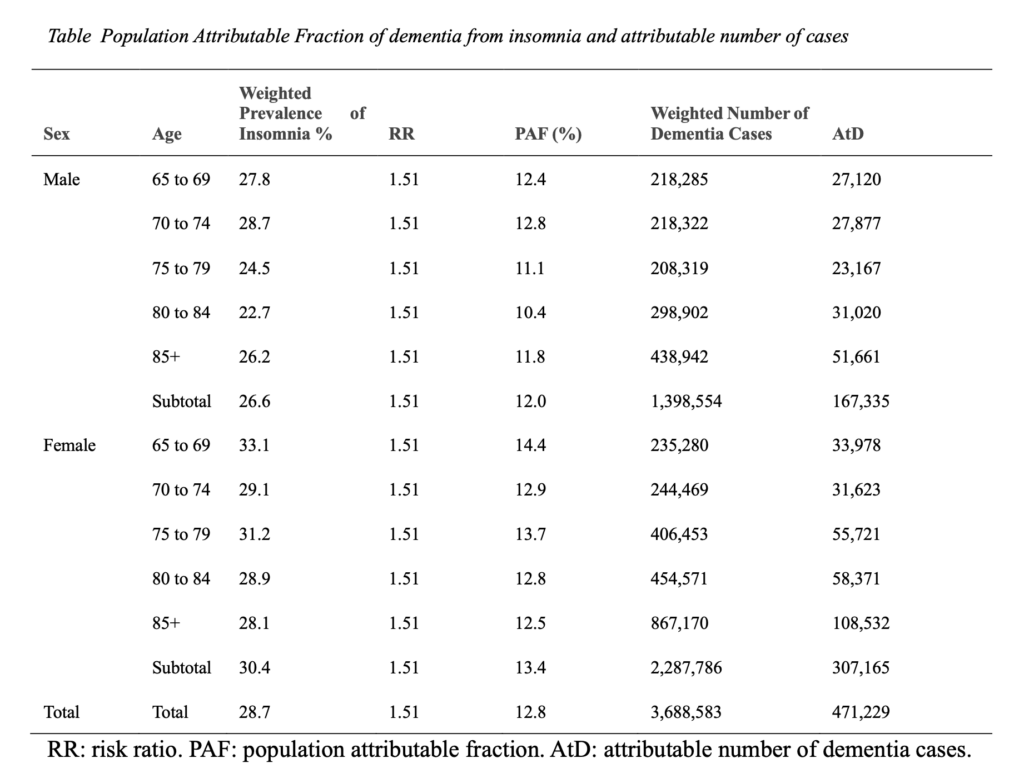Aging
Quantifying the Population Attributable Fraction of Dementia from Insomnia among Older Adults in the United States Ruijia Chen* Yuqian Lin Fei Wu Yuhan Wu Wanru Liu Goodarz Danaei Ruijia Chen
Background: Insomnia has been identified as a plausible modifiable risk factor for dementia in prior research, and yet no studies have quantified its population-level impact on dementia risk in the United States. This study estimated the proportion of dementia cases attributable to insomnia among U.S. adults aged 65 and older, overall and stratified by age and sex.
Methods: We analyzed data from the 2022 National Health and Aging Trends Study (NHATS), a nationally representative longitudinal cohort of Medicare population aged 65 and older in the U.S. We estimated the prevalence of insomnia and dementia using the NHATS data and derived the relative risk of dementia associated with insomnia from a published meta-analysis to obtain the population attributable fraction (PAF).
Results: Among 5899 participants (44.7% aged ≥80 years; 57.9% female), 12.1% experienced only sleep-onset insomnia, 6.6% had only sleep-maintenance insomnia, and 10.0% reported both. The prevalence of probable dementia was 6.6%, with prevalence increasing with age for both sexes. The estimated PAF of probable dementia due to any type of insomnia was 12.8%, with higher estimates for females (13.4%) than males (12.0%). Among females, insomnia had the largest contribution to dementia in the youngest age group (ages 65–69, 14.4%). For males, the greatest contribution was observed in the 70–74 age group (12.8%). An estimated 471,229 dementia cases in the U.S. in 2022 could have been prevented if insomnia had been eliminated among adults aged 65 and older.
Conclusion: Approximately 13% of probable dementia cases, almost half a million cases per year, among older adults in U.S. could be attributable to having any types of insomnia, an estimate comparable to the well-established risk factors such as hearing loss. These findings underscore the potential for interventions aimed at addressing insomnia to reduce dementia risk.

